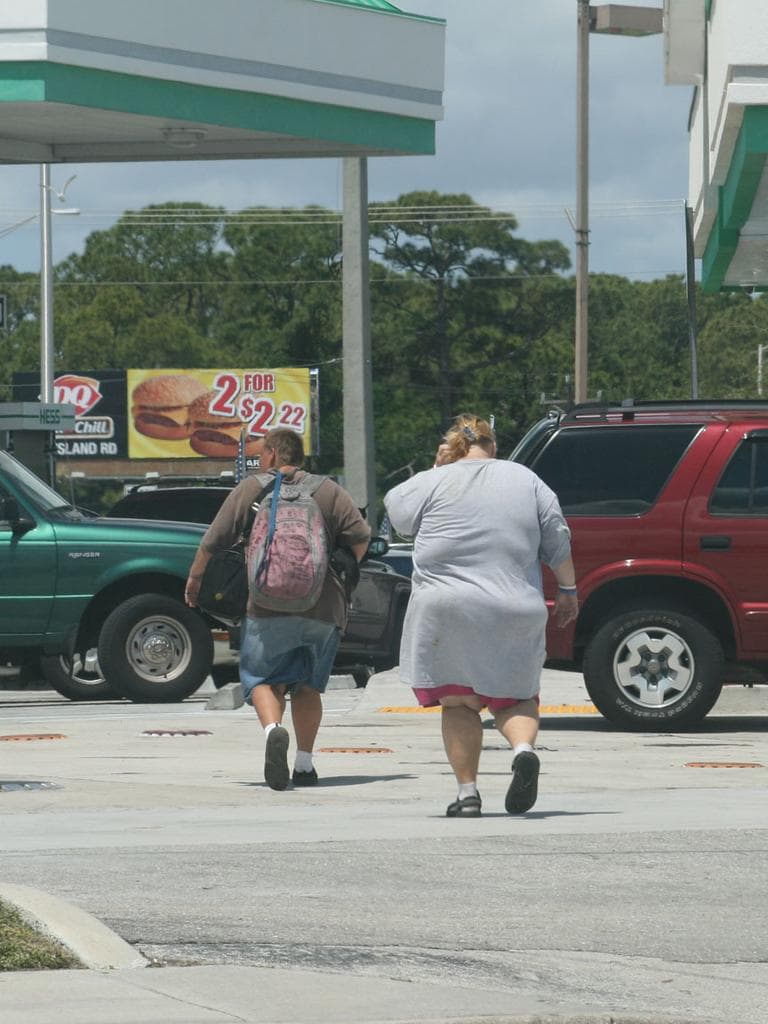Advertisement
Fat Index: Many Mass. Residents Still Dangerously Overweight
WBUR's Martha Bebinger reports that Massachusetts is now the "third-least obese state" in the nation. Still, according to a new report, 23 percent of residents are still dangerously overweight.

In Massachusetts, women used to be heavier than men, but the men have caught up. Baby boomers and adults who dropped out of high school have the biggest weight problems. And, while the Commonwealth is in better shape than most other states, obesity rates have climbed from 10% in the early 90s to 23%, says Laura Segal with the Trust for America's Health.
"That's a major people increase and puts people at significant increased risk for a whole range of diseases and adds to our health care costs tremendously," Segal says.
However, she says, there are signs the trend is leveling off for adults and even reversing for young children.
Here's more from the news release:
Massachusetts’s adult obesity rate is 22.9 percent and 13 states have adult obesity rates above 30 percent, 41 states have rates of at least 25 percent, and every state is above 20 percent, according to the report. In 1980, no state was above 15 percent; in 1991, no state was above 20 percent; in 2000, no state was above 25 percent; and, in 2007, only Mississippi was above 30 percent.
Since 2005, there has been some evidence that the rate of increase has been slowing. In 2005, every state but one experienced an increase in obesity rates; in 2008, rates increased in 37 states; in 2010, rates increased in 28 states; and in 2011, rates increased in 16 states.*
“While stable rates of adult obesity may signal prevention efforts are starting to yield some results, the rates remain extremely high,” said Jeffrey Levi, PhD, executive director of TFAH. “Even if the nation holds steady at the current rates, Baby Boomers—who are aging into obesity-related illnesses—and the rapidly rising numbers of extremely obese Americans are already translating into a cost crisis for the healthcare system and Medicare.”
Levi added, “In order to decrease obesity and related costs, we must ensure that policies at every level support healthy choices, and we must focus investments on prevention.”
This program aired on August 16, 2013. The audio for this program is not available.
